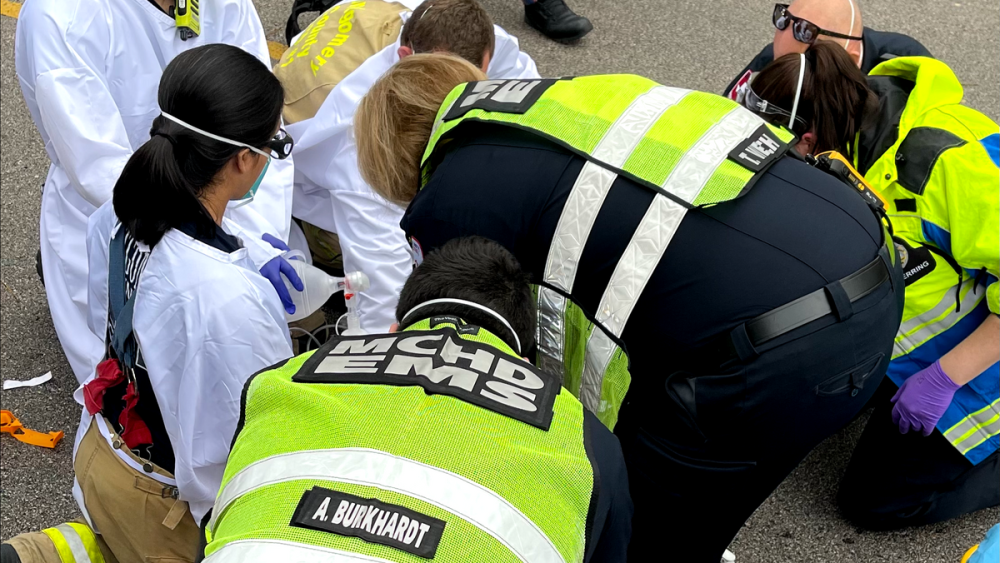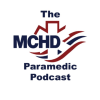By Sean Simmonds
In emergency medical services, about 30% of providers will be diagnosed with a mental illness. In comparison, about 20% of civilian adults are diagnosed with a mental illness.
Alarmingly, about 27% of EMTs have reported suicidal ideations. To put that in perspective, at a standard crew change of two off-going providers and two on-coming providers, at least one person in that group has been diagnosed with a mental illness, and at least one has contemplated suicide.
Local Greater Houston statistics show that providers seeking mental health treatment suffer from such diagnoses as include bipolar disorder, depression, schizoaffective disorder and major depressive disorder [1].
Not everyone that has a mental disorder is in a crisis. Millions of Americans are living healthy, uninterrupted lives with a mental illness diagnosis. However, it is vitally important to recognize when someone may be experiencing a crisis. A crisis is when a person’s actions, feelings and behaviors can lead them to hurt themselves or others. Every person is unique, and their presentations are equally different. There are some commonalities with someone in crisis. One may experience hyperarousal, intrusive memories, burnout, suicidal ideations, inability to manage emotions, decline or change in work performance, depression or fatigue.
Never say, “You just need to get over it.”
Once you recognize that a partner, peer or station mate is in crisis, how you proceed is critical for their health and ability to seek help.
If you are a leader or supervisor, make yourself approachable. Employees must have an environment of trust and privacy when seeking help. Not only is it ethical, but it’s also the law.
If you are a peer, encourage the person in crisis to open up about their feelings. Express the concerns that you have noticed and remind them that they can share with you. Then, once a person confides in you with their feelings or concerns:
- Respond empathetically and without judgment
- Congratulate them on having the strength to share and seek help
- Build on their trust to instill a foundation of camaraderie and resilience
- If the information shared leads you to believe that they may cause harm to themselves or others, you might legally have to report the encounter to a higher level of care. If you must disclose information out of duty for safety, inform the person of those obligations and that you will be helping them through the process.
- If you do not believe your colleague a threat to themselves or others, listen to them. Use active listening, show understanding and provide feedback when needed. Sometimes, simply being an avenue to vent will be enough. Other times, you may need to give resources for further care. If you do not know specific available resources, ask permission to inquire with someone else who does or search online together.
How to get through a mental health crisis
Sometimes, you are the person going through crisis. As an educated provider, it can be challenging to know when to seek help for yourself.
Remember, you cannot care for others if you do not care for yourself.
If you experience the symptoms of crisis previously cited, understand that it is not weakness. Allow yourself the same empathy that you would extend to someone else in the same situation. Seek help from a peer or supervisor. If you are a supervisor, it is OK to talk to a reporting employee. If your agency has an employee assistance program (EAP), you should research the services offers. Often, agencies will have a contracted EAP that provides many resources, including mental health assistance, for little-to-no cost.
Counseling is a valuable resource when navigating mental illness or difficulties coping. A counselor can help individuals navigate their thoughts and feelings and allow them to proceed with a safe plan of action. Sometimes, counseling is not enough, and further treatments are necessary, just as diet control may not be sufficient for diabetes management. Additional therapies include pharmacologic interventions, eye movement desensitization and reprocessing (EMDR), electroconvulsive therapy (ECT), or any combination of the above. These improve morbidity and help individuals recover, sometimes completely from their mental illness.
Regardless of your state of life or current diagnosis, there are some crucial steps you can take to improve your mental health. Staying physically active releases endorphins and serotonin into your system, helping improve your mood. Exercising also helps you relax and sleep, both of which are crucial when managing mental health. Keep a corps of peers or friends that you can vent to. Emergency services, by nature, are exposed to traumatic events. For any longevity, you need to be able to share the burden of the experiences.
Remember that not all stress is bad. Eustress helps us remain focused and goal-oriented. It is ok to be overwhelmed. If you find yourself in a position where you are overwhelmed, try taking a break from some tasks. Give yourself time to breathe and spend time with family or friends. A healthy work-life means a healthy home life.
If you believe you require immediate help, contact the National Suicide Prevention Lifeline at 800-273-8255. Learn more at one of the many emergency service mental health organizations, like the Code Green Campaign or Safe Call Now.
About the author
Sean Simmonds is EMS preparedness and safety coordinator for Montgomery County Hospital District (MCHD) in Texas.
References
- J Farris: PIO Cypress Creek Hospital – Houston, Texas
Read next
The 3-part EMS assessment: Your patient, your partner and yourself
Check-in on how you and your partner are functioning during difficult calls, and learn when and how to take a productive break
This article was originally posted May 27, 2021. It has been updated.





